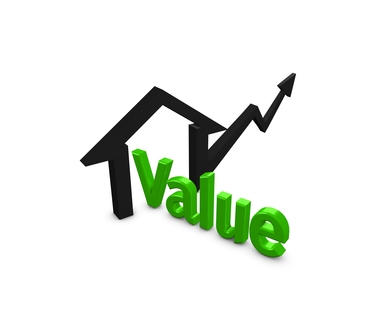 Figuring out your home’s true market value is never an easy process. The price that you paid for your home most likely does not reflect its current value accurately. Real estate markets are subject to frequent and drastic fluctuations, and there are numerous factors that go into determining how much a home is worth on the market today. To determine your home’s true market value and dissolve any uncertainties, follow these calculation guidelines to come to an accurate figure.
Figuring out your home’s true market value is never an easy process. The price that you paid for your home most likely does not reflect its current value accurately. Real estate markets are subject to frequent and drastic fluctuations, and there are numerous factors that go into determining how much a home is worth on the market today. To determine your home’s true market value and dissolve any uncertainties, follow these calculation guidelines to come to an accurate figure.
Ironically, one of the most important factors in calculating your home’s market value has very little to do with your home itself. Recent sales of other homes in your neighborhood contribute more influence to your home’s market value than almost any other force in real estate. Location has always been a primary concern for buyers everywhere, and the values of homes in your immediate vicinity have significant influence here. Look up recent home sales in your neighborhood to see what prices similar houses are fetching on the market.
The physical condition of your property is another highly influential concern in determining market value. While many buyers are willing to purchase a run-down house as a project, the fixer-upper never fetches the same price as a fully maintained and livable home. Run a thorough inspection of your property to determine whether there are any glaring problems that could detract from the home’s value. Structural damage is a serious concern that can cause your home’s market value to plummet quickly. Aesthetic imperfections are not great causes of concern in the real estate market, but mold, faulty electricity and foundation problems can all kill your home’s value.
Take note of any value-increasing upgrades you’ve made to your home in recent years. Don’t count on something like a new front door or a fresh coat of paint to buoy your home’s value in a rough market. Look for the long term upgrades that really contribute to the home’s overall value, rather than simply making it look nicer. Upgrades for energy efficiency are significant value boosters. Have you invested in insulation, upgraded utilities, Energy Star appliances and other energy efficient home improvements? Factor these into the equation to bring up your home’s value.
Keeping all of these figures in mind, consider enlisting the help of a professional appraisal services to help you hammer out the details in your home value calculations. Appraisers are often hired by prospective buyers to determine whether a home is truly worth its asking price. By turning the tables, you can preempt the buyer and avoid messy negotiations by determining a fair market value in advance. If you’d rather skip the professional appraisal, educate yourself on websites like LendingExpertBlog.com to get in the know with regards to financial matters such as this.
Finally, remember that market value is never set in stone. Your home’s value will fluctuate as property values rise and fall–this happens in real estate all over the world. In the end, the true deciding factor in your home’s market value lies in one simple question: How much is the buyer willing to pay?
